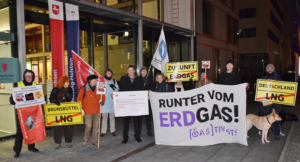By David Sánchez
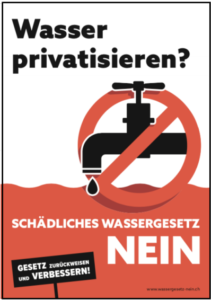 To a certain extent, attempts to privatise water have started looking like an anachronism in Europe. From Madrid and Thessalonoki to Berlin and Italy, every time citizens have been asked, they have massively supported public water management. If we have learned a lesson after years of imposed austerity, it is that water privatization can only have a chance when it is imposed against citizens’ will, as we are still witnessing in Greece. With a trend to remunicipalise water services around the world, some of the main examples are happening in European cities like Terrassa and Valladolid in Spain; Montpellier in France; Mafra in Portugal; and Torino in Italy.
To a certain extent, attempts to privatise water have started looking like an anachronism in Europe. From Madrid and Thessalonoki to Berlin and Italy, every time citizens have been asked, they have massively supported public water management. If we have learned a lesson after years of imposed austerity, it is that water privatization can only have a chance when it is imposed against citizens’ will, as we are still witnessing in Greece. With a trend to remunicipalise water services around the world, some of the main examples are happening in European cities like Terrassa and Valladolid in Spain; Montpellier in France; Mafra in Portugal; and Torino in Italy.
The last ones to reject privatization plans are the citizens of Zurich, Switzerland. Last Sunday, voters rejected (by more than 50 percent) the plans of the cantonal government to allow the partial privatization of water utilities and to give private land owners a greater say in river and lakeshore use.
Rejecting recommendations by the main centre-right parties and big business, a campaign lead by left wing parties, unions and environmental groups managed to raise awareness about water commodification and against the privatization of nature.
Saying no is not enough
The morning after the referendum, an initiative was introduced in the parliament of the Canton of Zurich to guarantee public ownership over water and take initiatives to promote the human right to water. It’s a great example of how we can move from resistance into proactive campaigns to secure a model of public water management that promotes social justice.
If you read German, you can get more information about the situation in Zurich in the website of the campaign and in the press release from the trade unions.



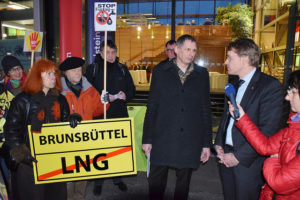 by
by 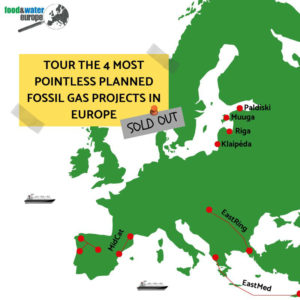 What about taking a trip to some climate disaster projects across Europe? In 2017, Food & Water Europe
What about taking a trip to some climate disaster projects across Europe? In 2017, Food & Water Europe 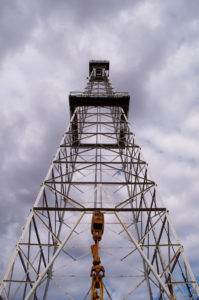 How LNG is still an accepted back door for fracked gas in Europe
How LNG is still an accepted back door for fracked gas in Europe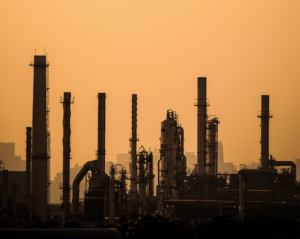 Update, March 19 : ExxonMobil, despite happily using lobbying opportunities in the European Parliament and other EU institutions, has refused parliamentarians’ invitation to speak at the hearing. This is unacceptable. Parliament must act to hold Exxon accountable. At the hearing, we will be asking them to revoke their lobbying access entirely, just as they did with
Update, March 19 : ExxonMobil, despite happily using lobbying opportunities in the European Parliament and other EU institutions, has refused parliamentarians’ invitation to speak at the hearing. This is unacceptable. Parliament must act to hold Exxon accountable. At the hearing, we will be asking them to revoke their lobbying access entirely, just as they did with  To a certain extent, attempts to privatise water have started looking like an anachronism in Europe. From Madrid and Thessalonoki to Berlin and Italy, every time citizens have been asked, they have massively supported public water management. If we have learned a lesson after years of imposed austerity, it is that water privatization can only have a chance when it is imposed against citizens’ will, as we are still witnessing in Greece. With a trend to remunicipalise water services around the world, some of the main examples are happening in European cities like Terrassa and Valladolid in Spain; Montpellier in France; Mafra in Portugal; and Torino in Italy.
To a certain extent, attempts to privatise water have started looking like an anachronism in Europe. From Madrid and Thessalonoki to Berlin and Italy, every time citizens have been asked, they have massively supported public water management. If we have learned a lesson after years of imposed austerity, it is that water privatization can only have a chance when it is imposed against citizens’ will, as we are still witnessing in Greece. With a trend to remunicipalise water services around the world, some of the main examples are happening in European cities like Terrassa and Valladolid in Spain; Montpellier in France; Mafra in Portugal; and Torino in Italy.